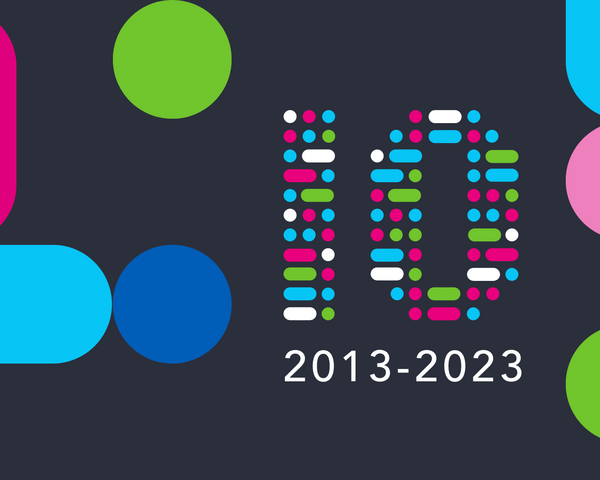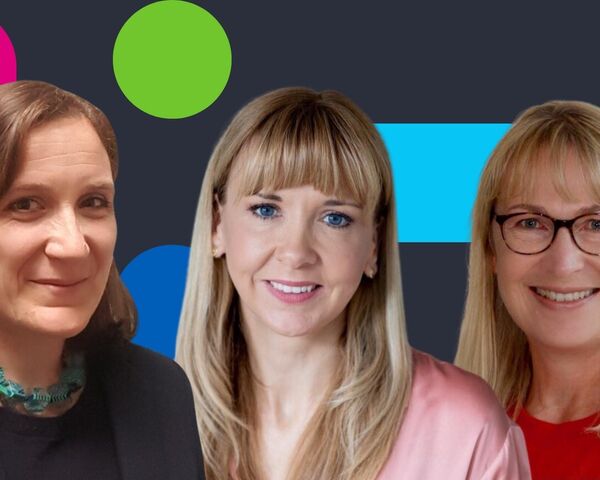Finding answers for participants: 10 years of genome analysis
By Susan Walker on
Through the 100,000 Genomes Project – Genomics England’s very first initiative – in partnership with the NHS, we used whole genome sequencing to uncover new diagnoses for participants across a range of rare conditions.
Genomics is a fast-moving field. Science and technology have advanced a lot over the past few years. My team is continuing to analyse the data for the participants in the 100,000 Genomes Project based on these new advances. We do this to ensure that all participants benefit from the learning that has taken place during the 100,000 Genomes Project and the knowledge gained over the past 10 years.
Through this work, we aim to provide more answers for participants who have not yet received a diagnosis for their rare condition.
While recruitment to the 100,000 Genomes Project was completed in 2018, for us this is not the end of the story – to some extent it is only the beginning.
We are very grateful to the participants of the 100,000 Genomes Project. It was their generously donated data that helped us, alongside the NHS England Genomics Unit and the NHS Genomic Medicine Service, to develop the systems, services and research environment that now enables many more people to get a diagnosis.
Rapid evolution in genomic testing
Many rare genetic conditions are caused by a genetic change or ‘glitch’ in a single gene in the genome. The goal with genomic testing is to find an answer for a family about why they may have the symptoms that they have.
It’s not an easy thing to do, particularly as there are many genes to look at and many different types of genetic changes, known as variants.
Historically, looking for genetic changes that could explain a genetic condition was based on testing a small number of genes at a time. Often this would mean families had multiple tests and still not have an answer.
At the start of the 100,000 Genomes Project, whole genome sequencing was a very new technology. It meant that we could look at the whole genome in a single test to pinpoint changes in the genetic code.
Although using this new technology was challenging, with it we were able to uncover new diagnoses for many families across a broad range of rare conditions.
Building on early whole genome sequencing analysis
Over the past 10 years, there have been big advances in our understanding about the genome and the tools used to analyse genomic data.
We now know more about which genes are linked with which health conditions and better understand the impact of different types of genetic changes.
We’re also better at finding complex genetic changes in the genome that could not be found before (though the genome is very complex, and many diagnoses are still very difficult to find).
New approaches to analysis
During the 100,000 Genomes Project, the genomes for every family were analysed in the context of the clinical presentation, combined with knowledge about the genome. This analysis was performed for each family and all the data were reviewed by expert NHS clinical scientists.
Now that we have collected and analysed the data for all participants, we’re able to look at it in different ways to continue finding answers for families.
We now have the massive advantage of having everyone’s data together in the National Genomic Research Library. This means we can work on all the genomes at the same time, so we’re able to see differences and similarities between families that can help us to find new answers and return more diagnoses.
Research teams from academia and industry are analysing the genomic and clinical data stored securely in the National Genomic Research Library.
Their research projects use the data in different ways, which can help find new diagnoses now and in the future, as well as continue to improve our understanding about the genome.
In addition to this new research work, my team at Genomics England are looking at the data every day to uncover new diagnoses for 100,000 Genomes Project participants.
Compared with where we were in 2013, we now understand much more about which types of diagnosis are tricky to find.
Our work at Genomics England involves creating new ways to find new diagnoses, for example by looking at the literature to understand what’s new in the field of genomics or by developing our own tools for how we analyse and interpret the data based on new technological advances.
We have also worked closely with the NHS England Genomics Unit and the NHS Genomic Laboratory Hubs (NHS GLHs) to implement an appropriate pathway – called the Diagnostic Discovery pathway – so that the new potential diagnoses identified can be safely returned to the NHS clinical teams for the participants.
We help to identify new potential diagnoses and share our findings with the NHS GLHs. The expert scientists in the NHS GLHs then formally review and interpret our findings on a clinical basis before sending their results back to clinicians and to the participants.
The impact of whole genome analysis
Whole genome sequencing in the 100,000 Genomes Project has already led to more than 6,600 diagnoses being identified for participants. By continuing to analyse and explore the data, we can continue to increase the number of diagnoses.
Last year – through a combination of the research findings from academic and commercial partnership and internal Genomics England efforts – we returned just over 1,500 potential new diagnoses to the NHS clinical teams.
Ten years on, we're still making more discoveries
We are hugely grateful to all the participants in the 100,000 Genomes Project.
Their generously donated data helped us to develop the systems, services and research environment that now enable many more diagnoses to be found for families.
They also helped (and continue to help) to move science and technology forward. It’s important to make sure that they benefit from these new developments, with ongoing analysis of their data.
Ten years on, we’re still looking for and finding more answers. It’s remarkable how far we have come, but many participants are still hoping for a diagnosis to be found.
The more we learn about the genome, the better we understand complex patterns in genomic data. In turn, the more sophisticated our knowledge and tools become.
We will never find a genetic diagnosis for everyone's condition, because not everyone's condition will be genetic in nature.
Our work may also help us to understand more about which conditions benefit more from other tools available to medical science, rather than genomic testing.
But the more that we do together – with Genomics England, the NHS, the research community and the participants – the more we'll learn. As we learn, we will become better and better at finding new diagnoses for the families.
We will continue to explore the data for the participants on an ongoing basis, to do our best for all the participants and patients by finding and returning more diagnoses to their NHS clinical teams.
This is what gets me out of bed in the morning – trying to do the best that we can for all the participants and patients.
About the author
Dr Susan (Suzi) Walker is the Head of Translational Genomics at Genomics England. Her work involves analysing the data for participants in the 100,000 Genomes Project uncovering new potential diagnoses, which has resulted in members of the Participant Panel giving her the nickname 'the gene detective’. Suzi joined Genomics England initially as a Technical Project Manager.


